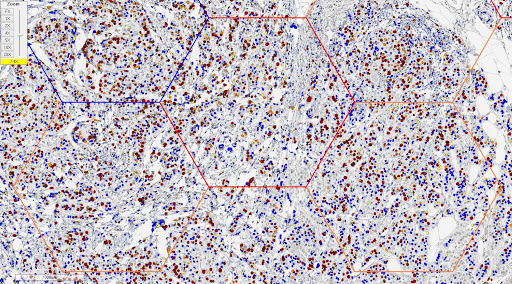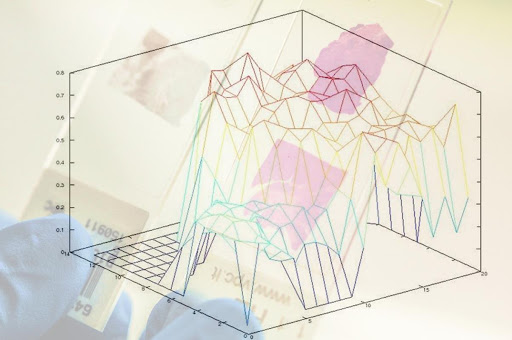A comprehensive biomarker intra-tumour heterogeneity evaluation by digital immunohistochemistry image analysis

 Project start: 2013-05-02
Project start: 2013-05-02
Project end: 2015-11-30
Financing: Project is funded by European Social Fund under operational programme for human resources development for 2007-2013 priority 3 “Strengthening Capacities of Researchers” measure VP1-3.1-ŠMM-07-K „Support to Research Activities of Scientists and Other Researcher (Global Grant)”.
Įgyvendinantis personalas: Prof. dr. Arvydas Laurinavičius, projekto vadovas, Prof. Ian Ellis, vyriausiasis mokslo darbuotojas, Dr. Paulette Herlin, vyriausioji mokslo darbuotoja, Dr. Aida Laurinavičienė, mokslo darbuotoja, Raimundas Meškauskas, jaunesnysis mokslo darbuotojas, Justinas Besusparis, jaunesnysis mokslo darbuotojas, Indra Baltrušaitytė, jaunesnioji mokslo darbuotoja, Yasir Iqbal, specialistas programuotojas.
Project Aim: to develop and test tumour tissue heterogeneity methodologies to achieve comprehensive evaluation of IHC biomarker expression.
Project Objective: Explore alternative mathematical approaches to select best strategy for tumour tissue heterogeneity assessment and to perform comprehensive digital IHC image analysis of breast cancer patient cohorts introducing the validated heterogeneity features.
Main activities: Validate and calibrate tumour tissue detection and positive IHC cell enumeration algorithms to be used in the context of tools developed to analyse tissue heterogeneity aspects, Develop and test methodologies to assess heterogeneity aspects of IHC biomarker expression in tumour tissue and perform image analysis of multiple IHC biomarkers, taking into account intra-tumour tissue variability, on breast cancer patient cohorts.
We developed and tested methodologies of intra-tumour heterogeneity assessment based on various techniques of immunohistochemistry (IHC) digital image analysis and tissue microarray (TMA) simulations in this project. Principles of stereology and image texture analysis were applied to arrive to best strategies. Selected methodologies were optimized for efficient and robust application on whole slide images (WSI) and TMA. Validated tools were applied on well-characterised breast cancer patient cohorts in Caen, Nottingham, and Vilnius to derive new generation of prognostic models, based on multivariate analyses of the IHC biomarker expression taking into account spatial heterogeneity of the events. The methodologies developed and prognostic models obtained were cross-validated in this multi-centre study. This work is innovative due to the integration of mathematical theories to the domain of human pathology diagnosis in terms of methodology, quantitative analysis, and added value of newly developed tumour heterogeneity metrics. In this regard, the benefit of the study can be viewed as an important analytical enhancement of the IHC tests used widely in many areas of diagnostic pathology. In practical terms, validated methods would allow further development of computer-assisted diagnosis and prognosis decision support tools to be plugged into laboratory information and digital pathology systems.



